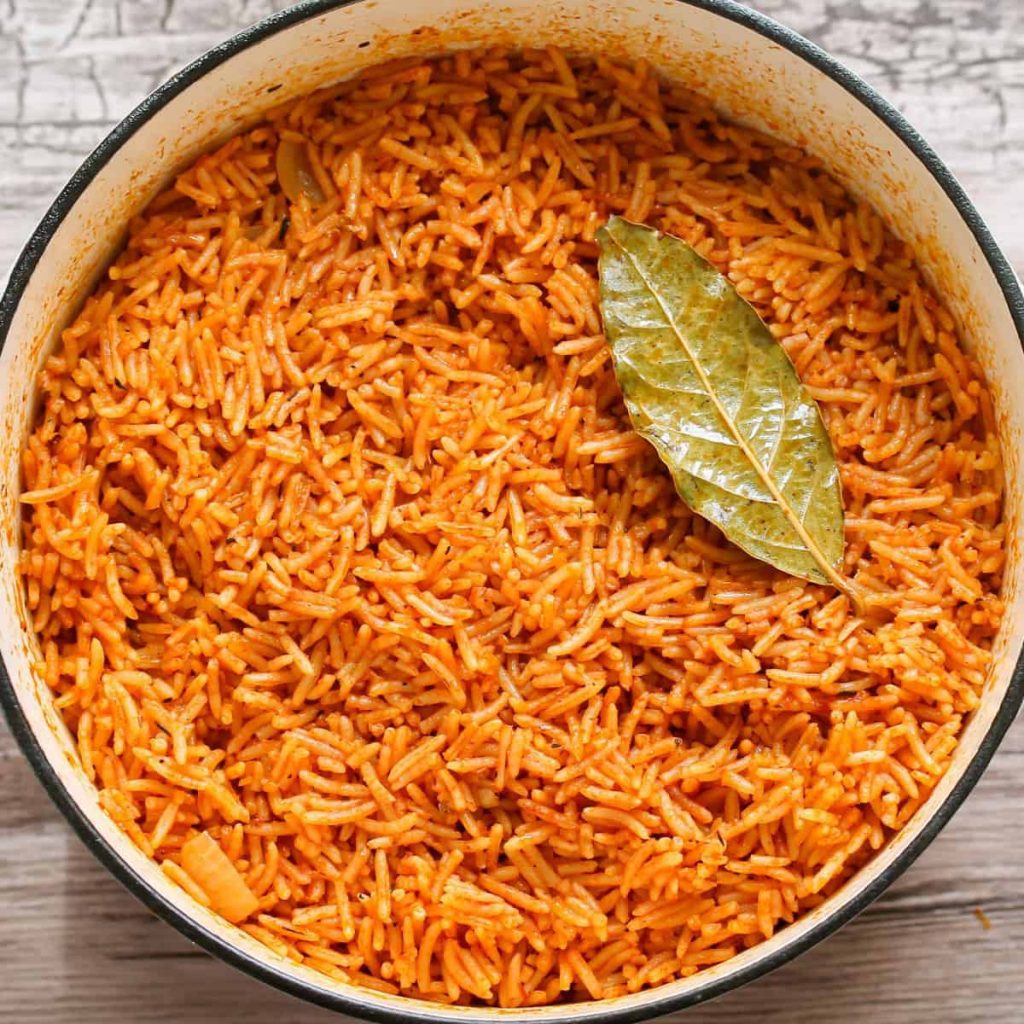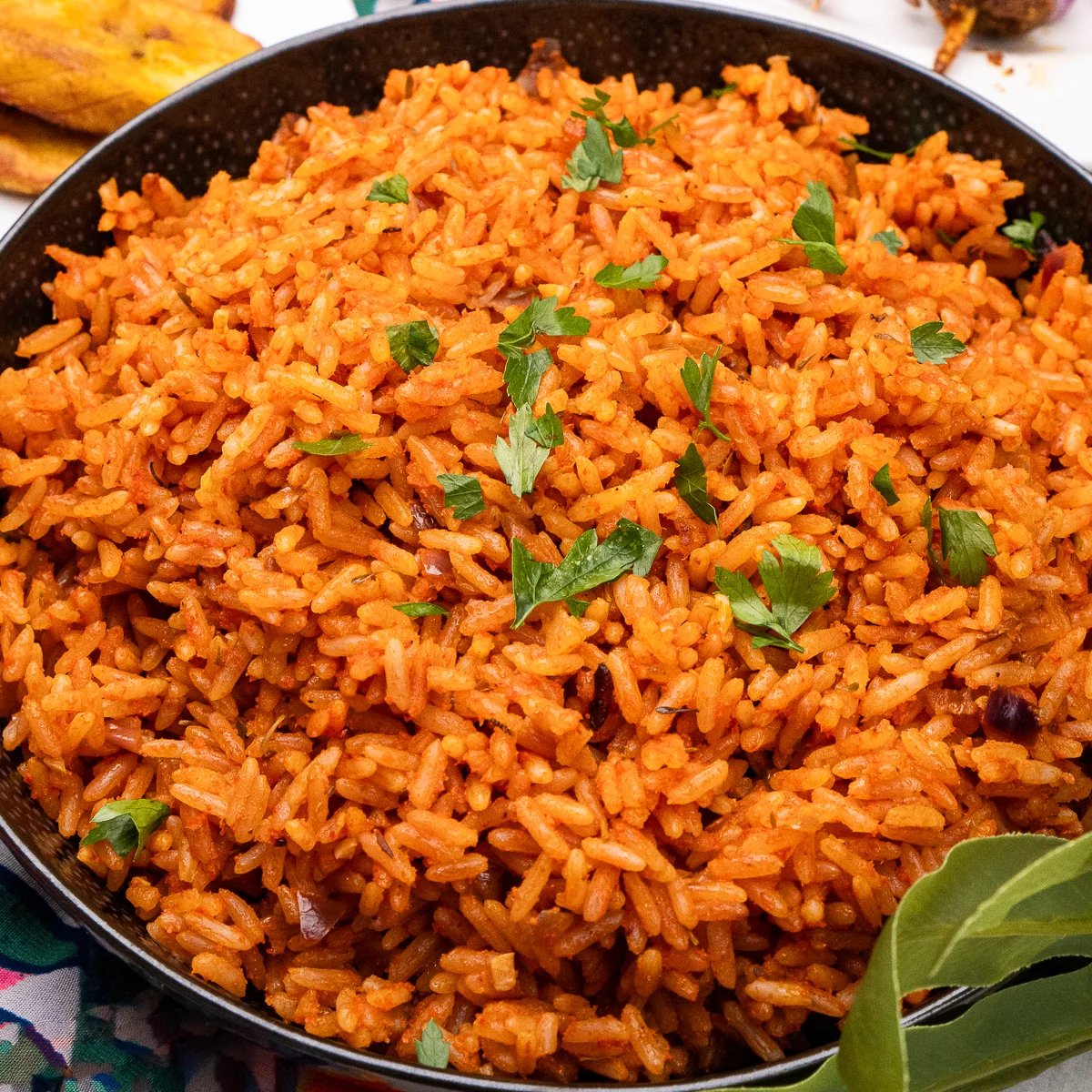
As food prices across Nigeria have been rising rapidly in recent years, the costs of cooking the cherished national dish, jollof rice, have also skyrocketed for families. From 2020 to 2024, prices for key jollof rice ingredients like rice, tomatoes, palm oil, and meat have surged upwards of 50-125%, driven by high inflation, climate change impacts, supply chain disruptions and instability. This steep increase has made the classic recipe unaffordable for the average Nigerian household. This article will analyze the complex factors causing the escalating prices of cooking jollof rice and the harsh economic impact on families struggling to maintain this cultural tradition.
| Ingredient | 2020 Price | 2021 Price | 2022 Price | 2023 Price | 2024 Projected Price |
|---|---|---|---|---|---|
| Rice (5kg) | ₦4,500 | ₦5,500 | ₦6,500 | ₦7,300 | ₦8,200 |
| Tomatoes (13kg basket) | ₦4,500 | ₦6,000 | ₦7,500 | ₦8,400 | ₦9,400 |
| Onions (bag) | ₦4,000 | ₦7,500 | ₦9,000 | ₦10,100 | ₦11,300 |
| Red Bell Peppers (4-5 peppers) | ₦2,500 | ₦3,500 | ₦4,500 | ₦5,000 | ₦5,600 |
| Palm Oil (25 liters) | ₦10,500 | ₦15,000 | ₦22,500 | ₦25,200 | ₦28,300 |
Overview of Jollof Rice Costs in Nigeria from 2020-2024
- In 2020, cooking jollof rice for a family of four cost approximately ₦5,000 in Lagos. This covers the base ingredients like rice, tomatoes, onions, and vegetables.
- By 2021, the total average price for the dish rose to ₦5,800, representing a 16% increase year-over-year.
- In 2022, the cost jumped again to ₦6,500, a 12% rise from 2021.
- For 2023, projections estimate the price could hit ₦7,300, an additional 12% increase.
- Analysts predict that by 2024 the cost may reach ₦8,200, a staggering 64% increase from 2020 expenses.
This rapid escalation of a commonplace meal demonstrates Nigeria’s intense food inflation pressures.
Key Jollof Rice Ingredients and Their Soaring Prices
Several integral ingredients that give jollof rice its classic taste and texture have faced major individual price hikes from 2020 onward:
Rice
- The base carb of jollof rice is long grain rice.
- In 2020, a 5kg bag cost approximately ₦4,500 in Lagos markets.
- By late 2022, the price had jumped to ₦6,500, representing a 44% price surge in just two years.
- Factors like supply chain disruptions, poor harvests, and high transport costs have driven up rice prices.
Tomatoes
- Pureed tomatoes give jollof rice its signature red hue.
- In 2020, a large 13kg basket of tomatoes cost around ₦4,500.
- Today that same quantity costs over ₦7,500, an increase of 67% in three years.
- Climate change, pests, and middlemen markups have impacted tomato costs.
Onions
- Sliced onions provide an aromatic base when sautéed.
- In 2020, a bag of onions was approximately ₦4,000.
- By late 2022, the price had skyrocketed to ₦9,000 per bag, a whopping 125% jump.
- Flooding, shortages, and high inflation largely caused this spike.
Red Bell Peppers
- Diced red bell peppers add sweetness and flavor.
- In 2020, a bag of 4-5 peppers was around ₦2,500.
- Today that same bag is ₦4,500, representing an 80% increase in cost.
- Climate change, transport fees, and middlemen markups have driven up prices.
Palm Oil
- Jollof rice is traditionally cooked in palm oil in Nigeria.
- In 2020, a 25-liter keg was ₦10,500.
- By late 2022 it had surged to ₦22,500, more than double the 2020 price.
- Limited production and global supply chain issues with alternatives like sunflower oil caused this rise.
Meat Protein
- Chicken, beef or fish are commonly added to jollof rice.
- Poultry prices rose over 25% from 2020 to 2022 due to bird flu outbreaks and costlier feeds.
- Beef prices climbed nearly 40% in two years amidst limited grazing resources.
- Fish prices increased over 50% with higher fuel costs impacting fishermen.
Cooking Gas
- Jollof rice is usually cooked using LPG cooking gas.
- Prices for a 12.5kg cylinder of gas rose from ₦4,000 in 2020 to ₦6,500 in 2022, a 62% increase.
- Removal of some electricity and fuel subsidies impacted cooking gas costs.
Transportation
- Traffic congestion, fuel prices, and poor road infrastructure have driven up transportation costs for ingredients.
- Hiring a delivery truck to transport rice from rural farms cost ₦15,000 in 2020 versus ₦22,000 in 2022, a 47% increase.
Economic Factors Exacerbating Jollof Rice Inflation
Besides ingredient costs, broader economic dynamics have exacerbated the surging prices of jollof rice preparation in Nigeria:
- High petrol costs – With fuel prices reaching record highs, transportation fees have climbed.
- Weakened naira – Nigeria’s currency value has dropped significantly against the US dollar, making imports costlier.
- Elevated inflation – Nigeria faced 17-year record high inflation of 21.47% in November 2022.
- Conflict and insecurity – Clashes with groups like Boko Haram have disrupted farming and agriculture.
- Climate change – Erratic weather patterns have decreased crop yields.
- Higher electricity – Removal of fuel subsidies has increased cooking costs.
- Population growth – Rising demand strains food supplies.
- Pandemic disruptions – COVID-related supply chain issues impacted food production and distribution.
- Government policy – Import restrictions on some staple foods have decreased supplies.
- Youth unemployment – High youth jobless rates lower purchasing power for many families.
Regional Jollof Rice Price Differences
While costs have risen nationwide, some parts of the country have seen steeper jollof rice price increases:
- In the Northeast region, ongoing conflict with Boko Haram and ISWAP has severely impacted rice farming and led to shortages, driving up costs.
- The landlocked North Central region has faced particularly high transportation costs for imported food items given lack of seaports.
- Flooding in the South South region has disrupted local rice and vegetable farming, increasing reliance on expensive imports.
- The South West has experienced rapid urban population growth in cities like Lagos, intensifying demand and prices.
- The Southeast had the lowest increases as proximity to ports and expansive farmland helped absorb pressures.
Projections: Jollof Rice Prices for 2023 and 2024
Experts predict jollof rice costs for the average Nigerian family will keep rising over the next two years:
- In 2023, ingredients like rice, tomatoes, vegetables will likely remain expensive or become pricier with sustained high fuel and transport costs.
- Analysts estimate jollof rice for a family of 4 may reach around ₦7,300 in 2023, a 12% increase from 2022.
- Into 2024, lingering issues like the Ukraine war could maintain high palm oil prices. Persistent local inflation could also continue driving food costs up.
- Based on projections, the estimated price for a family in 2024 could hit ₦8,200, up 12% from 2023.
- Some experts forecast the cost could even top ₦10,000 by late 2024 if conditions decline further, nearly double 2020’s costs.
Government Policy Options to Address Jollof Rice Inflation
The skyrocketing price of staples like jollof rice has forced many Nigerian families to adjust cooking and eating habits. Many households have needed to find creative ways to maintain their cultural food traditions amidst very challenging economic constraints. Strategies that families have adopted include
- Agricultural subsidies – Provide subsidies for rice farmers and vegetable growers to increase domestic food production.
- Price controls – Institute temporary price ceiling policies to alleviate costs of key staple ingredients.
- Import duty reductions – Lower tariffs on imported rice and edible oils to increase supply.
- Infrastructure investment – Upgrade transport networks and electricity to reduce food supply costs.
- Farmer support – Offer low-interest credit, training, and irrigation resources to boost yields.
- Wastage reduction – Implement initiatives to decrease food loss and waste across supply chains.
- Forex stability – Stabilize/strengthen the naira’s exchange rate to control imported inflation.
- Youth employment – Create more job opportunities to increase household purchasing power.
Coping Strategies for Families Facing Pricier Jollof Rice
The skyrocketing price of staples like jollof rice has forced many Nigerian families to adjust cooking and eating habits. Many households have needed to find creative ways to maintain their cultural food traditions amidst very challenging economic constraints. Strategies that families have adopted include:
- Buy larger quantities in bulk – Take advantage of lower per-unit prices on rice, onions, other non-perishables.
- Substitute pricier ingredients – Swap items like beef for lower-cost fish or chicken.
- Form food co-ops – Pool resources with other households to purchase wholesale.
- Support local farms – Buying direct from nearby farms eliminates middlemen markups.
- Start small kitchen gardens – Grow inexpensive vegetables like tomatoes and peppers at home.
- Cook bigger batches – Prepare larger pots of jollof rice, freeze extra portions.
- Find cheaper substitutes – Consider more affordable dishes like coconut rice or jollof spaghetti.
- Avoid waste – Use all leftovers to lower costs.
- Change menus – Serve jollof rice only on special occasions rather than routinely.
- Reduce portions – Cut per-person serving sizes to make meals stretch further.
- Substitute ingredients – Use more affordable vegetables like carrots or cabbage.
- Buy imperfect produce – Purchase misshaped or overripe tomatoes, onions at a discount.
- Pre-prep ingredients – Wash, chop, measure ingredients in advance to save cooking gas.
- Use energy-efficient stoves – Cook with dual-fuel or natural gas stoves to lower energy costs.
- Form community food banks – Donate surplus food and distribute to those in need locally.
- Advocate for government support – Lobby leaders and protest for policies to address food inflation.
- Many families now prioritize affordability and frugality to cope with Nigeria’s severe food inflation crunch. Households are being forced to totally rethink longstanding food habits to survive in this challenging economic environment.






